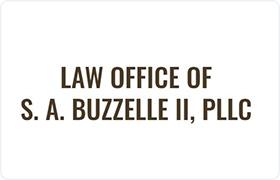El Mirage Collection Lawyer, Arizona
Sponsored Law Firm
-
 x
x

Click For More Info:
-
Law Office of S.A. Buzzelle II, PLLC
14050 N 83rd Avenue Suite 290 Peoria, AZ 85381» view mapBankruptcy & Debt Law Your Trusted Bankruptcy Attorney
If you are in need of legal services for matters relating to bankruptcy and divorce, rely on Law Office of S. A. Buzzelle II, PLLC in Peoria, AZ.
800-873-4991
Michael J. Fuller
✓ VERIFIEDEstate, Collection, Business, Contract, Litigation
In 1988, I started my own firm without any clients but with a steadfast commitment to practice law consistent with my own ideals and personality. I tr... (more)
Lawrence P Karandreas
Consumer Bankruptcy, Bankruptcy Litigation, Credit & Debt, Collection
Status: In Good Standing Licensed: 36 Years
Kim Rene Lepore
Commercial Real Estate, Litigation, Contract, Collection
Status: In Good Standing Licensed: 26 Years
Patricia Nicole Syverson
Litigation, Lawsuit & Dispute, Civil Rights, Collection
Status: In Good Standing Licensed: 25 Years
 Stanley A. Buzzelle II Peoria, AZ
Stanley A. Buzzelle II Peoria, AZ Practice AreasExpertise
Practice AreasExpertise

